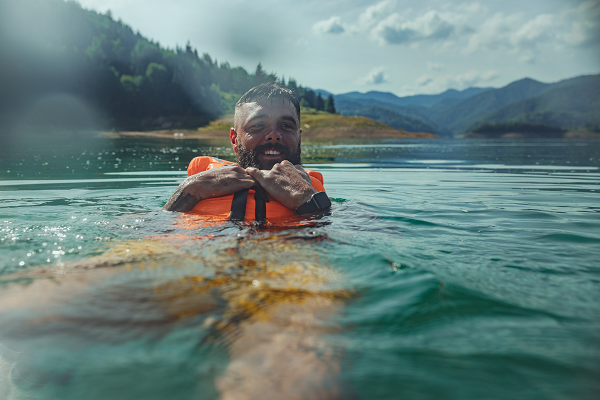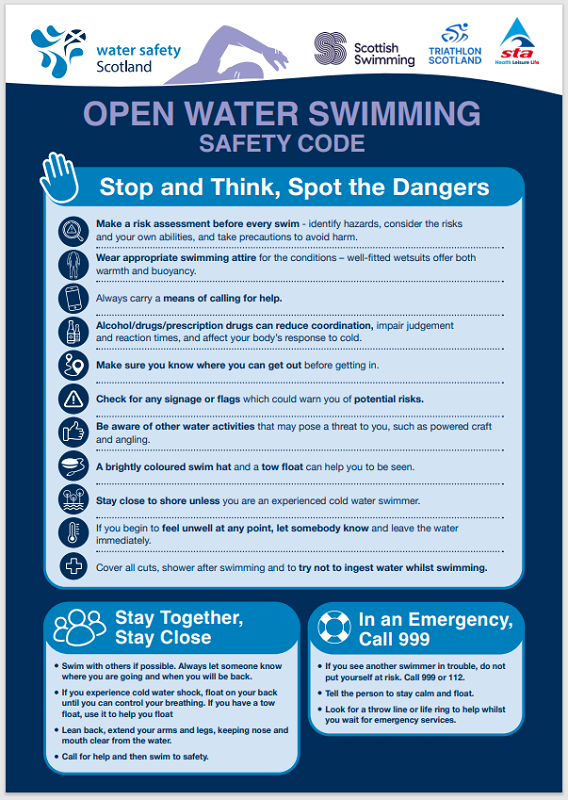Open Water Swimming
The benefits of swimming and dipping in open water are well documented. Not only does being in or on open water allow new adventures and interest it also has documented benefits for both physical and mental wellbeing.
Open water swimming takes place anywhere that isn’t a swimming pool. This means no man-made sides and bottom, and no lane ropes or black lines to follow. Open water swimming commonly takes place in:
- Lakes
- Rivers
- Lochs
- Seas
- Reservoirs
You can now watch our Open water swimming safety video featuring Jenny Paterson from Wild Wimmin Swimmin. Watch this video to learn the key advice to keep yourself safe when open water swimming.
What are the risks?
- The shock of cold water can make swimming difficult and make it more difficult to get out of the water
- Lack of safety equipment and increased challenge in the event of rescue
- The depth of the water – this can change and can be unpredictable
- Underwater objects and hazards may not be visible
- Obstacles or other people in the water
- Strong currents can rapidly sweep people away
- Water quality, e.g. toxic algal blooms and industrial/agricultural pollution
Many drownings occur at open water sites. Many of these drownings occur due to a lack of knowledge and understanding of open water safety. The basic principles of open water safety, combined with knowledge and understanding of the hazards, can increase the enjoyment of open water and significantly reduce the number of incidents that occur each year.
How to minimise the risk
- Join a recognised open water swimming club.
- Be prepared. Check the weather and tides, choose your spot, go with a buddy and have the right equipment.
- If in doubt, don’t go out. No matter how much preparation you do, or how experienced you are, if a swim doesn’t feel right there is no shame in getting out of the water straight away, or not entering.
- Make sure you acclimatise to the water to minimise the risk of cold water shock.
- Be seen. Wear a brightly coloured swim hat and take a tow float.
- Stay within your depths.
- In an emergency Float to live and call 999


